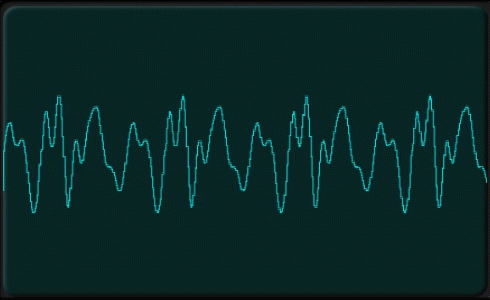

This library provides most frequent used speech features including MFCCs and filterbank energies alongside with the log-energy of filterbanks. If you are interested to see what are MFCCs and how they are generated please refer to this wiki page.
Currently, the package has been tested and verified using Python 2.7, 3.4 and 3.5.
If you used this package, please cite it as follows:
@misc{amirsina_torfi_2017_840395,
author = {Amirsina Torfi},
title = {{SpeechPy: Speech recognition and feature extraction}},
month = aug,
year = 2017,
doi = {10.5281/zenodo.840395},
url = {https://doi.org/10.5281/zenodo.840395}
}There are two possible ways for installation of this package: local installation and PyPi.
For local installation at first the repository must be cloned:
git clone https://github.com/astorfi/speech_feature_extraction.git
After cloning the reposity, root to the repository directory then execute:
python setup.py develop
The package is available on PyPi. For direct installation simply execute the following:
pip install speechpy- Mel Frequency Cepstral Coefficients(MFCCs)
- Filterbank Energies
- Log Filterbank Energies
The supported attributes for generating MFCC features can be seen by investigating the related function:
def mfcc(signal, sampling_frequency, frame_length=0.020, frame_stride=0.01,num_cepstral =13,
num_filters=40, fft_length=512, low_frequency=0, high_frequency=None, dc_elimination=True):
"""Compute MFCC features from an audio signal.
:param signal: the audio signal from which to compute features. Should be an N x 1 array
:param sampling_frequency: the sampling frequency of the signal we are working with.
:param frame_length: the length of each frame in seconds. Default is 0.020s
:param frame_stride: the step between successive frames in seconds. Default is 0.02s (means no overlap)
:param num_filters: the number of filters in the filterbank, default 40.
:param fft_length: number of FFT points. Default is 512.
:param low_frequency: lowest band edge of mel filters. In Hz, default is 0.
:param high_frequency: highest band edge of mel filters. In Hz, default is samplerate/2
:param num_cepstral: Number of cepstral coefficients.
:param dc_elimination: hIf the first dc component should be eliminated or not.
:returns: A numpy array of size (num_frames x num_cepstral) containing mfcc features.
"""def mfe(signal, sampling_frequency, frame_length=0.020, frame_stride=0.01,
num_filters=40, fft_length=512, low_frequency=0, high_frequency=None):
"""Compute Mel-filterbank energy features from an audio signal.
:param signal: the audio signal from which to compute features. Should be an N x 1 array
:param sampling_frequency: the sampling frequency of the signal we are working with.
:param frame_length: the length of each frame in seconds. Default is 0.020s
:param frame_stride: the step between successive frames in seconds. Default is 0.02s (means no overlap)
:param num_filters: the number of filters in the filterbank, default 40.
:param fft_length: number of FFT points. Default is 512.
:param low_frequency: lowest band edge of mel filters. In Hz, default is 0.
:param high_frequency: highest band edge of mel filters. In Hz, default is samplerate/2
:returns:
features: the energy of fiterbank: num_frames x num_filters
frame_energies: the energy of each frame: num_frames x 1
"""The attributes for log_filterbank energies are the same for filterbank energies too.
def lmfe(signal, sampling_frequency, frame_length=0.020, frame_stride=0.01,
num_filters=40, fft_length=512, low_frequency=0, high_frequency=None):
"""Compute log Mel-filterbank energy features from an audio signal.
:param signal: the audio signal from which to compute features. Should be an N x 1 array
:param sampling_frequency: the sampling frequency of the signal we are working with.
:param frame_length: the length of each frame in seconds. Default is 0.020s
:param frame_stride: the step between successive frames in seconds. Default is 0.02s (means no overlap)
:param num_filters: the number of filters in the filterbank, default 40.
:param fft_length: number of FFT points. Default is 512.
:param low_frequency: lowest band edge of mel filters. In Hz, default is 0.
:param high_frequency: highest band edge of mel filters. In Hz, default is samplerate/2
:returns:
features: the energy of fiterbank: num_frames x num_filters
frame_log_energies: the log energy of each frame: num_frames x 1
"""In Stack_Frames function, the stack of frames will be generated from the signal.
def stack_frames(sig, sampling_frequency, frame_length=0.020, frame_stride=0.020, Filter=lambda x: numpy.ones((x,)),
zero_padding=True):
"""Frame a signal into overlapping frames.
:param sig: The audio signal to frame of size (N,).
:param sampling_frequency: The sampling frequency of the signal.
:param frame_length: The length of the frame in second.
:param frame_stride: The stride between frames.
:param Filter: The time-domain filter for applying to each frame. By default it is one so nothing will be changed.
:param zero_padding: If the samples is not a multiple of frame_length(number of frames sample), zero padding will
be done for generating last frame.
:returns: Array of frames. size: number_of_frames x frame_len.
"""There are some post-processing operation that are supported in speechpy.
This function performs global cepstral mean and variance normalization (CMVN) to remove the channel effects. The code assumes that there is one observation per row.
def cmvn(vec, variance_normalization=False):
"""
This function is aimed to perform global ``cepstral mean and variance normalization``
(CMVN) on input feature vector "vec". The code assumes that there is one observation per row.
:param:
vec: input feature matrix (size:(num_observation,num_features))
variance_normalization: If the variance normilization should be performed or not.
:return:
The mean(or mean+variance) normalized feature vector.
"""This function performs local cepstral mean and variance normalization (CMVN) over sliding windows. The code assumes that there is one observation per row.
def cmvnw(vec, win_size=301, variance_normalization=False):
"""
This function is aimed to perform local cepstral mean and variance normalization on a sliding window.
(CMVN) on input feature vector "vec". The code assumes that there is one observation per row.
:param
vec: input feature matrix (size:(num_observation,num_features))
win_size: The size of sliding window for local normalization and should be odd.
default=301 which is around 3s if 100 Hz rate is considered(== 10ms frame stide)
variance_normalization: If the variance normilization should be performed or not.
:return: The mean(or mean+variance) normalized feature vector.
"""The test example can be seen in test/test.py as below:
import scipy.io.wavfile as wav
import numpy as np
import speechpy
file_name = 'Alesis-Sanctuary-QCard-AcoustcBas-C2.wav'
fs, signal = wav.read(file_name)
signal = signal[:,0]
############# Extract MFCC features #############
mfcc = speechpy.mfcc(signal, sampling_frequency=fs, frame_length=0.020, frame_stride=0.01,
num_filters=40, fft_length=512, low_frequency=0, high_frequency=None)
mfcc_feature_cube = speechpy.extract_derivative_feature(mfcc)
print('mfcc feature cube shape=', mfcc_feature_cube.shape)
############# Extract logenergy features #############
logenergy = speechpy.lmfe(signal, sampling_frequency=fs, frame_length=0.020, frame_stride=0.01,
num_filters=40, fft_length=512, low_frequency=0, high_frequency=None)
logenergy_feature_cube = speechpy.extract_derivative_feature(logenergy)
print('logenergy features=', logenergy.shape)For ectracting the feature at first, the signal samples will be stacked into frames. The features are computed for each frame in the stacked frames collection.
Two packages of Scipy and NumPy are the required dependencies which will be installed automatically by running the setup.py file.
Although by dramatic chages, some portion of this library is inspired by the python speech features library.
We clain the following advantages for our library:
- More accurate operations have been performed for the mel-frequency calculations.
- The package supports different
Pythonversions. - The feature are generated in a more organized way as cubic features.
- The package is well-tested and integrated.
- The package is up-to-date and actively developing.
- The package has been used for research purposes.
- Exceptions and extreme cases are handled in this library.

